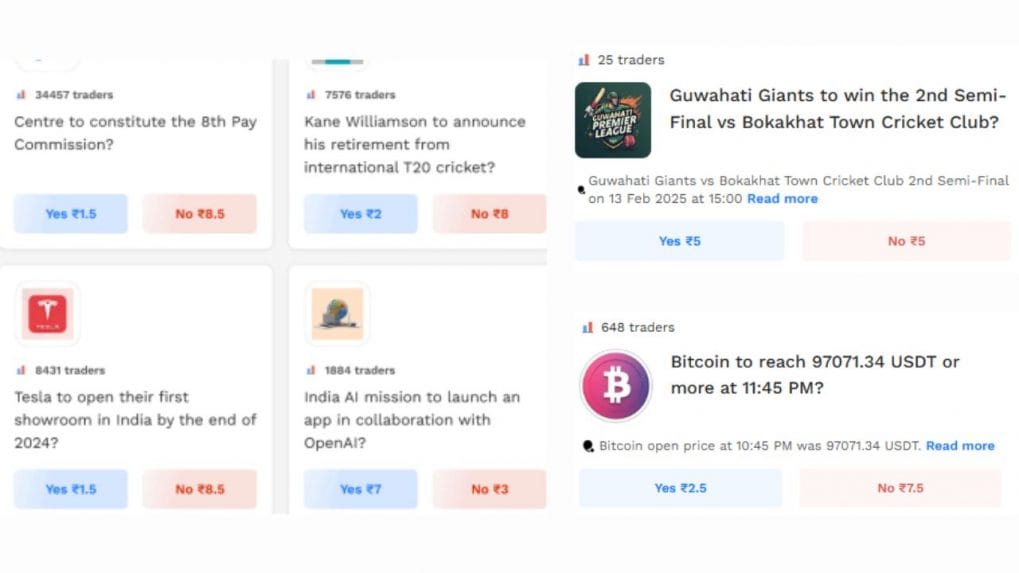Agency News
'Why buy a network that even Dentsu couldn’t fix?': Inside the gamble of Dentsu's international arm sale

The Punjab and Haryana High Court on Tuesday directed the Haryana government to initiate legal action against opinion trading platforms that violate the recently enacted Haryana Prevention of Public Gambling Act, 2025. Haryana becomes the second state to prohibit opinion trading platforms after the state of Chhattisgarh.
The division bench, comprising Chief Justice Sheel Nagu and Justice Sumeet Goel, issued the directive while hearing a Public Interest Litigation (PIL) that sought a ban on opinion trading platforms and a halt to all related advertising across media platforms, including Instagram, YouTube, X (formerly Twitter), Facebook, print, television, radio, and other digital outlets.
During the hearing, the bench questioned the state about the enforcement of the new gambling law. The state government responded that the Act had come into force on April 9, 2025. In light of this, the bench instructed the authorities to take appropriate legal action against platforms engaging in opinion trading for violating the provisions of the Act.
The PIL, filed by Advocate Anuj Malik and a member of the New India Consumer Initiative, contended that opinion trading platforms disguise gambling as market speculation or public opinion analysis, thereby evading regulatory scrutiny.
The Act, introduced during the state’s recent budget session by Chief Minister Nayab Singh Saini, who also holds the Home portfolio, targets public gambling activities including sports and election betting and match-fixing. It includes stringent provisions, such as a minimum three-year imprisonment and a fine of at least ₹5 lakh for those involved in match- or spot-fixing, with repeat offenders facing up to seven years in prison.
According to the provisions of the Act, “whoever indulges in match-fixing or spot-fixing in sports shall be liable to imprisonment for a term not less than three years and up to five years, and shall also be liable to a fine of not less than Rs 5 lakh.” A subsequent offense could result in imprisonment for up to seven years.
The Act defines a "bet" as “any agreement, whether oral, written, or otherwise, between two or more parties regarding the occurrence or non-occurrence of an event—past, present, or future—whose outcome is unknown to any or all of the parties at the time of the agreement, where the party making an incorrect prediction must pay or forfeit a stipulated consideration to the other party or parties involved, either monetary or non-monetary."
Interestingly, this definition of "bet" closely mirrors the format used by many opinion and sports trading platforms operating in India.
The court's directive comes amid growing regulatory scrutiny nationwide. The Securities and Exchange Board of India (SEBI) recently issued a public advisory warning investors against interacting with such platforms, stating they are unregistered entities operating outside the legal financial ecosystem.
Further raising concerns, the Advertising Standards Council of India (ASCI) released a whitepaper highlighting the lack of regulation and advertising ethics in the burgeoning sector. ASCI cautioned that the portrayal of opinion trading as skill-based gaming could mislead consumers, particularly youth and financially vulnerable users.
During routine ad monitoring, ASCI encountered numerous advertisements from platforms like Probo, SportsBaazi, and TradeX that allow users to place bets on outcomes such as cricket match results—activities that appear to be speculative in nature.
Some platforms, like Probo, market themselves as skill-based platforms where users make predictions on upcoming events and earn rewards for correct answers. Others, such as SportsBaazi, even allow users to “buy stocks” in players based on performance metrics. Influencers have also been actively promoting such platforms on social media, often claiming they are legal and reliable—despite the absence of clear legal validation.
Experts argue that the lack of defined regulatory frameworks for opinion-based gaming has created a legal gray area. While these games continue to generate significant user engagement and revenue, their resemblance to gambling has raised alarms within the real-money gaming (RMG) industry.
According to LinkedIn’s research with over 1,700 B2B tech buyers, video storytelling has emerged as the most trusted, engaging, and effective format for B2B marketers. But what’s driving this shift towards video in B2B? (Image Source: Unsplash)
Read MoreIndia’s parliamentary panel warns fake news threatens democracy, markets and media credibility, urging stronger regulation, fact-checking, AI oversight and global cooperation.